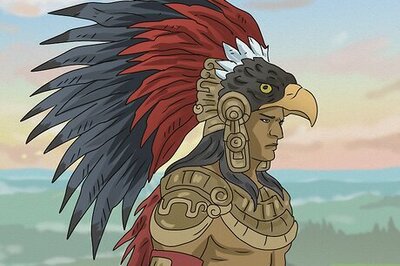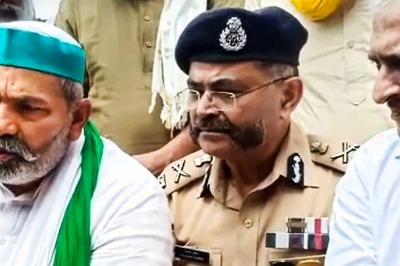
views
Chennai: It’s the end of an era as DMK patriarch M Karunanidhi’s demise brings the curtain down on the Dravidian movement which shaped Tamil Nadu’s politics. The Dravidian icon’s death sent shock waves not just in India but also in the Indian community abroad.
Here’s a look at how the foreign media reacted to M Karunanidhi’s death:
Reporting the Kalaignar’s passing away, CNN recalled his long political journey and humble beginnings as a screenwriter. “Karunanidhi swiftly rose up the ranks. Following the death of Annadurai in 1969, he took over as leader of the DMK and as chief minister, a post he would hold for nearly 18 years over five separate terms.” It also recalled his association with Periyar EV Ramasamy’s self-respect movement, which brought Karunanidhi in touch with his mentor CN Annadurai.
The BBC report titled 'M Karunanidhi: The radical wordsmith who shook up Indian politics' detailed Karunanidhi’s contribution to the world of cinema and his fight against religious dogma and caste orthodoxies. “He campaigned against the caste supremacy of Brahmins and also opposed a move by the federal government to impose Hindi as an official language of communication in south India,” the report said.
The Associated Press in its article said: “Karunanidhi dominated the Tamil-language movie industry as a screenwriter beginning in the 1950s, and later the political scene for nearly five decades.”
The Washington Post, touched upon the former chief minister's five-decade long political career and his hold over Tamil cinema."Karunanidhi dominated the Tamil-language movie industry as a screenwriter beginning in the 1950s, and later the political scene for nearly five decades. He became the state’s chief minister, the top elected official in 1969 and held that position five times for a total of 19 years. He led the Dravida Munnetra Kazhagam political party."
In Sri Lanka, Ceylon Today's report, called Karunanidhi ‘a charismatic self-styled champion of the poor’. It further talked about how the Dravidian leader’s popularity did not wane even after handing over the reins of DMK to his son, M.K. Stalin.
















Comments
0 comment